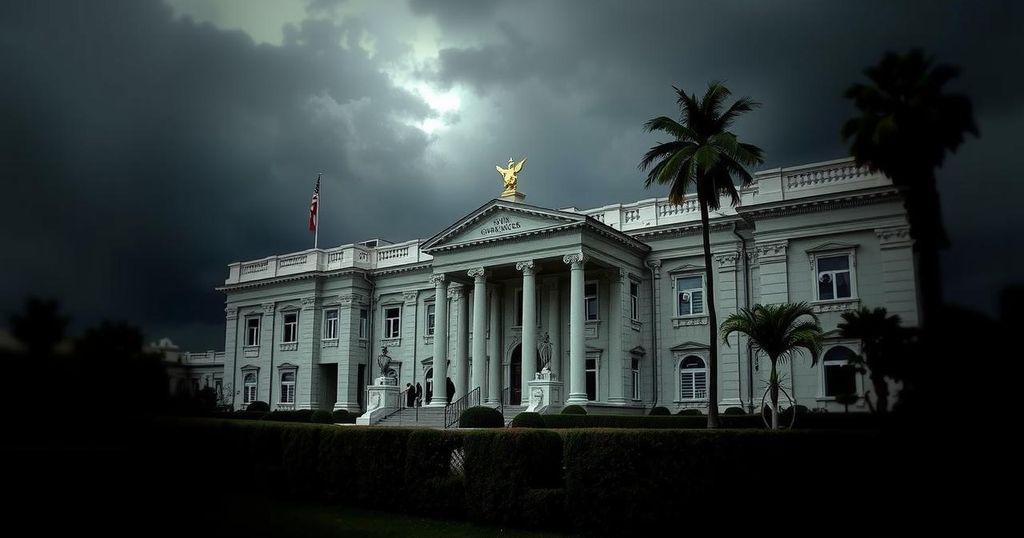Supreme Court Acquits Baltasar Engonga in Equatorial Guinea Sex Scandal

Baltasar Engonga, a former official in Equatorial Guinea, has been acquitted of all charges related to a sex scandal after the Supreme Court found insufficient evidence. The court confirmed that all parties in the associated videos were consenting adults, and medical tests showed no transmission of diseases. The fallout has spurred discussions among married men depicted in the videos, with some pursuing divorces. The case raises critical issues surrounding privacy and gender equality in the digital age, prompting government calls for strengthened privacy protections.
The Supreme Court of Equatorial Guinea has acquitted Baltasar Engonga, the former Director General of the National Financial Investigation Agency (ANIF), of all charges associated with a recent sex scandal. The court’s decision came as it found insufficient evidence to support the allegations and confirmed that all parties depicted in the controversial intimate videos were of consenting age. Notably, medical examinations revealed that Mr. Engonga had not transmitted any sexually transmitted diseases to those involved, reinforcing his defense against the claims made against him.
Interestingly, the fallout from the video scandal has led to unexpected reactions, with several married men expressing gratitude towards Mr. Engonga. They stated that the release of these videos unveiled hidden dynamics within their marriages, prompting them to reconsider their relationships, with some even opting for divorce. This case gained notoriety due to the high-profile nature of those implicated in the videos, including relatives of prominent governmental officials.
Following legal proceedings, Mr. Engonga intends to pursue legal recourse against those responsible for leaking the videos, which he claims violated his privacy and caused considerable distress to his family. Prior to his arrest, Mr. Engonga was accused of embezzling state funds and subsequently held in Malabo’s notorious Black Beach prison. His detainment coincided with the emergence of the intimate footage, which has fueled public discourse around privacy rights in the digital era.
In response to the scandal, First Lady of Equatorial Guinea, Mrs. Obiang, urged immediate government intervention to uphold the dignity of women in the nation amidst this digital age challenge. She acknowledged that while strides toward gender equality have been made, further protective measures are essential to prevent similar incidents. Prime Minister Osa Nsue echoed the sentiment, highlighting the damaging repercussions this situation has had on both gender equality initiatives and the nation’s public image.
The government has also discussed enhancing legal protections regarding personal privacy and managing the dissemination of private content on social media platforms. Vice President Teodoro Nguema Obiang Mangue has directed appropriate ministries to address the viral spread of the explicit videos, emphasizing the need to shield families from the fallout of the scandal. Consequently, new restrictions on multimedia sharing via mobile networks have been implemented, although such measures have drawn criticism from the public seeking easier access to communication.
The equatorial region is often characterized by complex sociopolitical dynamics, and this case highlights the intersection of personal lives and public duty among governmental officials. The recent sex scandal involving Baltasar Engonga reveals systemic issues surrounding privacy, consent, and the role of digital media in society. Notably, Engonga’s position as head of the ANIF placed him at the center of the investigation into embezzlement and the subsequent scandal, shedding light on the broader implications of personal conduct for public officials. This case is not only significant due to its salacious nature but also for its potential to influence legislative measures in Equatorial Guinea regarding privacy rights and gender equality in the digital age. The response from government officials, particularly in proposing new legal frameworks, reflects a critical recognition of the challenges posed by emerging technologies on personal and societal levels.
The recent Supreme Court ruling exonerating Baltasar Engonga marks a pivotal moment amid growing discourse on privacy, consent, and the impact of digital media in Equatorial Guinea. While the legal implications of the case unfold, the responses from high-ranking officials indicate a collective acknowledgement of the need for enhanced protective measures for both privacy and gender equality. This scandal not only exposes personal misdeeds but also serves as a catalyst for potential legislative reforms aimed at safeguarding citizens’ rights in an increasingly digital world.
Original Source: www.osundefender.com







